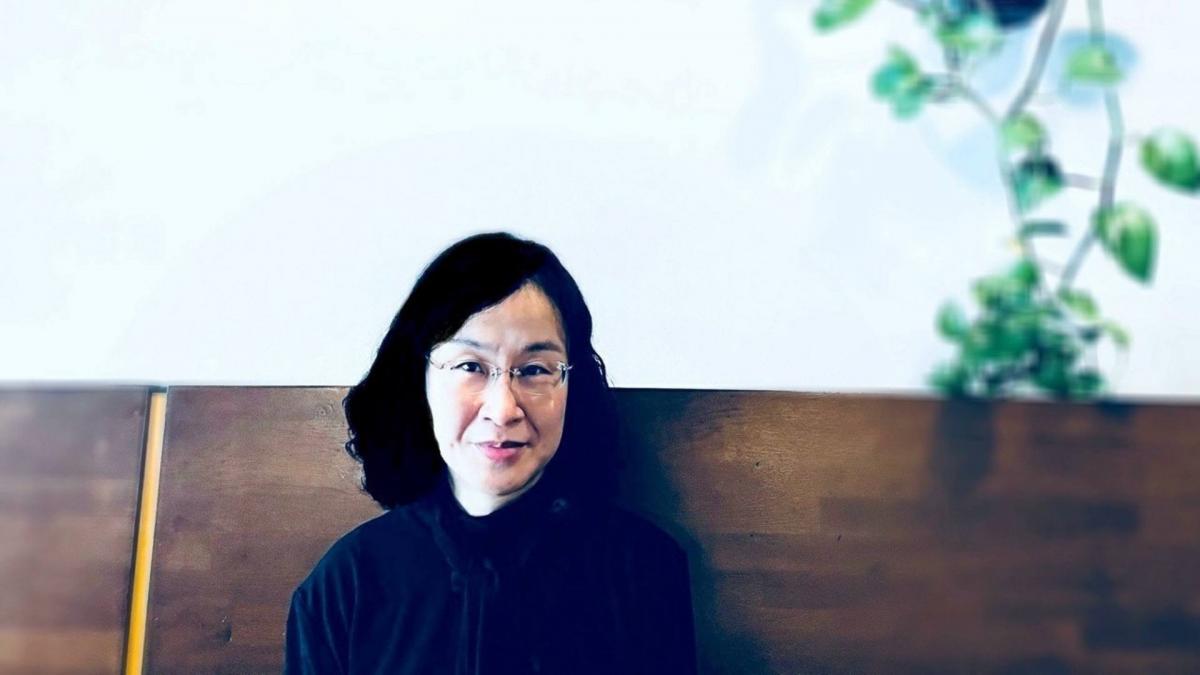Jin Hyun Kim: The musicality of interactive digital art
Visiting Professor Jin Hyun Kim discusses the musicality of interactive digital art

Program
For the purpose of suggesting a broad concept of music that is not limited to that of the West, the initial thesis of this lecture holds that music plays an important role in promoting affiliative communicative interaction, collaboration and social cohesion. A broad concept of music refers to the practices of affiliative communicative interaction consisting of sounds and/or body movements that shape coordinated non-representational forms of vitality and structure shared experiences; these practices, although they do not bear any representational semantics, are considered meaningful in that act of understanding occurring in terms of interactive participation and embodied re-enactment. Compared to Christopher Small’s concept of musicking, this broader concept of music also highlights a pragmatic dimension of the practices that are described as “musical,” yet it includes semantic and hermeneutic dimensions – albeit without being determined based on traditional approaches to musical semantics and hermeneutics. That is, the meanings of music are not grounded in representational semantics, nevertheless not refused, and are considered to emerge through experiential forms of understanding which go beyond textual hermeneutics. Against this background, musicality might be ascribed to interactive digital art, i.e. art that allows performers/users to interact with one another in real-time, to facilitate multimodal expression combining images, sounds, and/or body movements, and to overcome the boundaries between traditional artistic categories including dance, music and visual art, as well as those between art and life.
Providing examples from current projects of artistic-scientific research on societal health through real-time sound feedback on interindividual bodily behavior, the lecture discusses the extent to which those practices of interactive digital art that can be described as “musical” have social impact in an extraordinary, aesthetic way.
Performer
A South Korean-born artistic and scientific music researcher living in Germany, Jin Hyun Kim begun her two-year term as visiting professor of music technology at Uniarts Helsinki’s Sibelius Academy in January 2023. The activities of this visiting professorship include the investigation of embodied music-making and the exchanges across the three Uniarts academies that may cover basic research questions concerning the foundations of music perception and interaction as well as approaches related to the questions of social impact and wellbeing.
Read more about Jin Hyun Kim’s appointment
Read more about the international visitor programme
More information
- Jan Schacher, jan.schacher@uniarts.fi
Program
For the purpose of suggesting a broad concept of music that is not limited to that of the West, the initial thesis of this lecture holds that music plays an important role in promoting affiliative communicative interaction, collaboration and social cohesion. A broad concept of music refers to the practices of affiliative communicative interaction consisting of sounds and/or body movements that shape coordinated non-representational forms of vitality and structure shared experiences; these practices, although they do not bear any representational semantics, are considered meaningful in that act of understanding occurring in terms of interactive participation and embodied re-enactment. Compared to Christopher Small’s concept of musicking, this broader concept of music also highlights a pragmatic dimension of the practices that are described as “musical,” yet it includes semantic and hermeneutic dimensions – albeit without being determined based on traditional approaches to musical semantics and hermeneutics. That is, the meanings of music are not grounded in representational semantics, nevertheless not refused, and are considered to emerge through experiential forms of understanding which go beyond textual hermeneutics. Against this background, musicality might be ascribed to interactive digital art, i.e. art that allows performers/users to interact with one another in real-time, to facilitate multimodal expression combining images, sounds, and/or body movements, and to overcome the boundaries between traditional artistic categories including dance, music and visual art, as well as those between art and life.
Providing examples from current projects of artistic-scientific research on societal health through real-time sound feedback on interindividual bodily behavior, the lecture discusses the extent to which those practices of interactive digital art that can be described as “musical” have social impact in an extraordinary, aesthetic way.
Performer
A South Korean-born artistic and scientific music researcher living in Germany, Jin Hyun Kim begun her two-year term as visiting professor of music technology at Uniarts Helsinki’s Sibelius Academy in January 2023. The activities of this visiting professorship include the investigation of embodied music-making and the exchanges across the three Uniarts academies that may cover basic research questions concerning the foundations of music perception and interaction as well as approaches related to the questions of social impact and wellbeing.
Read more about Jin Hyun Kim’s appointment
Read more about the international visitor programme
More information
- Jan Schacher, jan.schacher@uniarts.fi